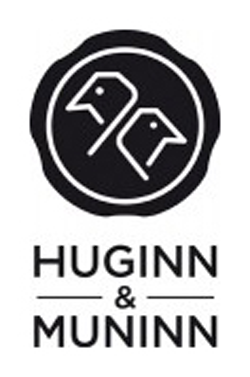Archibooks: contact et modalités de dépôt d'un manuscrit
Notre département d’édition sous le nom d’Archibooks a été créé en 2006, avec déjà plus de 300 titres au catalogue.
Le rythme de parution est de l’ordre d’une trentaine d’ouvrages par an et l’activité éditoriale est exclusivement consacrée aux contenus associés à la pratique de l’architecture contemporaine et de l’urbanisme. Dans le but de contribuer à mieux faire connaître la « culture » du projet, architectural ou urbain, ainsi que les actions de nombreux maitres d’ouvrages, se développe un contenu précis sur l’aménagement et le renouvellement urbain de sites emblématiques. Les livres sont conçus en collaboration avec les architectes, maitres d’ouvrage, constructeurs et institutions.
Nos livres sont diffusés en librairies par la SODIS (Groupe Gallimard) et présents dans un millier de points de vente en France et à l’international.
Contact
Maisons d'éditions similaires :

Huginn & Muninn

Chêne (Editions du)
Mango
Mango est un éditeur du pôle livre de Media Participations
Mango est un éditeur de livres pratiques inscrits dans l’air du temps, écrits et illustrés par des professionnels qui mettent leur savoir, technique ou théorique, à la portée de leurs lecteurs.
Des livres pratiques pour apprendre ou se divertir.
Pour apprendre à choisir les gestes et les thérapies les mieux adaptés pour une santé, une forme et un épanouissement optimaux.
Pour apprendre à accompagner le développement de ses enfants vers leur bien-être.
Pour apprendre à concocter de savoureuses recettes pour tous les jours, des repas pour voyager dans son assiette, des menus sains et légers pour répondre à un besoin spécifique de santé.
Pour apprendre à coudre ses vêtements et accessoires, à broder, crocheter et tricoter de jolies créations, à fabriquer des objets pour décorer sa maison ou simplement pour se faire plaisir.
Pour apprendre à dessiner, peindre, laisser éclater sa créativité.
Enfin pour faire fonctionner ses méninges, s’amuser en famille ou entre amis avec des jeux inédits, de logique, d’expression, de connaissances totalement addictifs.
Mango est un éditeur qui accompagne ses lecteurs dans leurs envies, leurs besoins. Des lecteurs soucieux de leur qualité de vie qui investissent leurs passions et souhaitent mettre en pratique tout ce qui pourra contribuer à leur bien-être.
Mango est aussi un éditeur de jeunesse, qui, avec ses albums aux aventures singulières, ses livres animés astucieux, ses héros touchants, souhaite emmener chaque enfant sur les chemins de la créativité et de l’imaginaire, et lui faire vivre un quotidien serein.
Editions Maïa
Arnaud Bizalion
Il recherche la perfection du couple sens et forme, considère que le livre est le prolongement de la pensée des auteurs, et privilégie
une écriture plasticienne et esthétique. Il accompagne et guide les artistes dans l'univers magique du livre.
Chaque ouvrage est construit à quatre mains, auteur et éditeur faisant équipe pour le meilleur de l'art.
Champ Vallon
Elles sont animées par Patrick Beaune.
Elles publient chaque année une vingtaine de titres nouveaux dans les domaines des sciences humaines, de l’histoire et de l’histoire environnementale, de la littérature française, de la poésie et de la critique littéraire.
Les livres sont diffusés et distribués en France et en Belgique par Harmonia Mundi Livres, par Zoé en Suisse et Dimédia au Canada.
Croisée des chemins (La)
Y rêver, y rire et y pleurer, garder le souci de l’âme et découvrir l’autre.
C’est ce que nous vous proposons.
Riveneuve
Riveneuve : la maison d’édition indépendante qui raconte le monde aux Français et les Français au monde
Nées en 2001 au bord de la Méditerranée, quai Rive-Neuve dans le vieux port de Marseille, les éditions Riveneuve publient d’abord une revue littéraire : Riveneuve Continents, revue des littératures de langue française. Mais, déjà, le parti pris est celui de l’ailleurs, des nouvelles rives, des nouvelles frontières. Montées à Paris en 2007, elles deviennent généralistes en sciences humaines et en littérature largement ouvertes sur le monde.
En 2016 la maison déménage dans un espace plus grand – une ancienne boutique d’opticien dont elle conserve l’enseigne lumineuse, au 85 rue de Gergovie dans le 14e arrondissement. C’est l’occasion d’un nouveau souffle et d’un nouveau concept : Riveneuve ne fait pas seulement près d’une cinquantaine de livres par an diffusés et distribués par Interforum, elle tisse du lien social autour des livres, elle « fait société ». Expositions, conférences, débats, lectures-musicales, concerts, ateliers d’écriture ou de calligraphie, marché de Noël, etc., Riveneuve est aussi un petit centre culturel en plein 14e !
À l’échelle d’une petite maison d’édition indépendante, il s’agit de penser global et d’agir local. En pleine conscience qu’une part conséquente de la littérature de langue française – c’est-à-dire du monde multiforme de la francophonie ou en traduction – et des sciences humaines est générée par l’exil et le voyage, Riveneuve entend contribuer aux débats qui animent la société française au travers de destins engagés en Europe, en Afrique, en Asie ou aux Amériques. Riveneuve est à l’écoute de la part étrangère qu’il y a dans chaque Français comme de la part française qui existe dans chaque auteur étranger qu’elle publie. Il s’agit de raconter le monde aux Français et les Français au monde.
Plutôt qu’une ligne éditoriale, il s’agit d’un environnement culturel auquel participe le nouveau concept (Riveneuve Concept-Store), le nouveau logo, la bande son de Riveneuve (texte et musique d’HK), le nouvel espace (« la boutique »), les nouvelles collections, le nouveau site web, la nouvelle équipe.
Scheidegger & Spiess
Marest éditeur
MAREST Éditeur est née au printemps 2016, de la volonté d’« éditer ce qui doit être édité ». La maison entend proposer aux lecteurs des livres de cinéma et de littérature, exigeants et curieux.